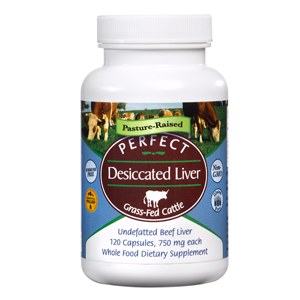Can What You Eat Help Ease the Pain of Nerve Pain?
I became painfully aware of nerve pain when my seventh nerve (facial nerve) was damaged due to a severe infection that partially paralyzed my face. Psychologically, it was devastating and painful, taking years for the pain to subside and begin the healing process.
Years later, I was quickly reminded how painful and devastating nerve damage can be when my husband suffered nerve damage from taking Levaquin, a fluoroquinonal antibiotic known to cause peripheral neuropathy. His chronic pain, tingling, and numbness in his hands and legs took months to heal after taking just eight pills of Levaquin.
When I experienced nerve damage, also known as peripheral neuropathy, little was known about neuropathy or the connection between nutrition and healing the nerves. Sure, we learned about thiamine (vitamin B1) deficiency, which leads to a condition known as beriberi with neuropathy symptoms. But what other nutrients could help the nerves and prevent neuropathy?
Food Can Impact the Health of Your Nerves and Help to Heal Damaged Nerves
After a doctor recommended B-complex supplements to speed up the healing process, I realized that certain foods might help repair nerve damage and reduce the pain.
Considering the leading cause of peripheral neuropathy is Type 2 Diabetes in the U.S., a condition very much related to diet, what we eat or don’t eat surely plays a role in nerve damage and healing.
Other conditions can lead to nerve damage. For example, other causes of nerve damage are cancer therapy, exposure to toxins, and even certain medications.
Interestingly enough, all of these conditions can impact our nutritional status. Especially those nutrients that are involved in maintaining healthy and responsive nerves.
How Do You Know if You are Suffering from Neuropathy?
Symptoms from nerve damage can start slowly or come on very quickly. Initially, you might feel pain or tingling in your hands or your feet. Or, you might feel numbness similar to when your limbs “fall asleep” due to lack of blood flow. With peripheral neuropathy, the numbness doesn’t go away when you stand up or stretch to improve blood flow.
Other Symptoms Are:
- Pin & Needles
- Pain in Extremities
- Numbness
- Muscle Weakness & Atrophy
- Tinnitus (Ringing in the Ears)
What are Causes for Nerve Damage?
According to the U.S. National Library of Medicine, the number cause of nerve damage or neuropathy is diabetes. Even high blood sugar without being a diabetic can put you at risk for nerve damage as it constricts the blood flow to the nerves. Along with Type 2 Diabetes, some other causes of nerve damage are:
- Nutrient Deficiencies – B1, B6, B12, Folate, Copper, Vitamin E
- Lyme Disease
- Mold Infection
- Medications
- Toxins – Industrial, Heavy Metals
- Viruses – Shingles, Hepatitis C
- HIV/AIDS
- Kidney Disease
- Autoimmune Disorders, i.e., Multiple Sclerosis
Can Medications Cause Nerve Damage?
One of the most overlooked causes of nerve pain are medications, and, in most cases, it is the long-term uses of certain drugs that can damage nerves.
Or deplete the nutrients that help maintain healthy nerves, as seen with Hydralazine (blood pressure medication) that depletes vitamin B6.
Other medications can cause nerve damage with short-term use, as seen in some antibiotics like Metronidazole and Levaquin.
Whereas it is still controversial whether Fluoroquinolones (Cipro, Levaquin), my husband knows first hand that this class of antibiotics can cause nerve damage even with short-term use.
Key Nutrients for Healing Nerves
Ironically, my doctor in the 1980s was right about taking a B-complex supplement to help heal my facial nerve.
And reduce my tinnitus (ringing in the ears due to nerve damage) started with the same severe infection in 1982. Later I found out that I had an increased need genetically for those B vitamins – B12, B2, B1, B3, Folate, and B6.
Along with B-vitamins, other crucial nutrients need for nerve health are vitamin E, choline, and copper. Omega-3 fatty acids also play a significant role in nerve health, with the richest source being cold-water fish like salmon and sardines.
Whereas just supplementing sounds like a great idea, it doesn’t have the other benefits that whole food can provide.
For instance, one of the causes of copper deficiency is excessive zinc supplementation. Another example is that vitamin B6 is needed for healthy nerves, but excess supplementation in the form of pyridoxine (200 mg. or more daily) can lead to nerve damage.
The 5 Superfoods for Nerve Repair and Health
Beef Liver/Organ Meats
A powerhouse of nutrition for nerve health can be found in beef liver and other organ meats. Beef liver is one the richest sources of vitamin B12 that plays a significant role in nerve development and maintaining healthy nerves. Liver can be prepared in many different ways to be palatable including preparing as pate or purchasing liver pate.
Beef liver is also rich in folate, vitamin B2, choline, vitamin B6, thiamine (vitamin B1), copper, and alpha-lipoic acid. All essential nutrients help to heal damaged nerves and maintain healthy nerves.
Vitamin B12 plays two significant roles in our body, one of which is forming the myelin sheath that protects our nerves. One of the signs of deficiency in B12 has been linked to neuropathy, beginning with sensory symptoms (burning, tingling, numbness, tightness) in the feet.
If you really can't stand the taste of liver, try supplementing with Perfect Desiccated Liver.
Salmon/Sardines – Cold Water Fish
Rich in omega-3 fatty acids, cold-water fish offers the best source of the essential fatty acid that is very anti-inflammatory. Research shows that a pro-inflammatory diet low in omega-3 fatty acids can put you at a higher risk of suffering from neuropathy.
Essential fatty acids are also an integral component of the cell membrane and myelin sheath that helps protect the nerves. And have been shown to reduce demyelination of nerves and neuropathic pain.
To get the full benefit of salmon and other cold-water fish, make sure to look for wild-caught fish and not farm-raised.
Farm-raised salmon has lower amounts of omega-3 fatty acids and higher omega-6 fatty acids, reducing anti-inflammatory properties.
Another plant-based source of essential fatty acids can also be found in chia seeds, hemp seeds, and flaxseeds.
These nutrition powerhouse seeds are not as high in omega-3 fatty acids as cold-water fish. However, they offer the same anti-inflammatory quality of omega-3 fatty acids, helping heal nerve damage and reduce pain.
Cruciferous Vegetables
Broccoli, cauliflower, Brussels sprouts, Bok Choy, radishes, and cabbage are in this class of vegetables.
These vegetables contain some of the building blocks for glutathione – our body’s most potent antioxidant that helps to reduce inflammation and oxidative stress.
Glutathione has also been shown to prevent neurotoxicity, preserving healthy nerves.
Cruciferous vegetables are also high in sulforaphane, a compound that triggers glutathione production by activating a gene known as NrF2. A double win.
Nuts & Seeds
Not only are nuts and seeds a rich source of omega-3 fatty acids, but they also have key nutrients that help to heal the nerves and reduce nerve pain.
Along with omega-3 fatty acids, nuts and seeds are a good source of vitamin E, copper, and omega-6 fatty acids needed for a healthy immune response.
Sunflower Seeds: Sunflower seeds are one the richest sources of vitamin E, a powerful antioxidant, and have been shown to reduce numbness, tingling, burning, and nerve pain.
Look for organic unroasted sunflower seeds or sunflower butter. Sunflower seed lecithin is also a plant-based rich source of choline in the form of phosphatidylcholine. I like this organic form of sunflower seed lecithin that can easily be blended into smoothies.
Almonds: Almonds are a great source of magnesium and vitamin E that has been shown to improve neurotoxicity, reduce pain, and heal nerves.
Flaxseeds: A great plant-based source of thiamine, an essential nutrient needed to help to maintain myelin protecting the nerves.
Not only are flaxseeds a good source of plant-based omega-3 fatty acids, but they are also high in fiber, helping to maintain a healthy gut. Look for organic whole flaxseeds or ground flaxseeds. Remember to store in the fridge or freezer after purchasing.
Eggs
Whether it is chicken or duck eggs, eggs are a rich source of choline and helps to produce acetylcholine, a neurotransmitter needed for a healthy nervous system, muscle movement, and memory.
Not only are eggs are rich source of choline, they are also high in other key nutrients for nerve health like vitamin B12, B2, folate, and vitamin E. In addition, some eggs are rich in omega-3 fatty acids depending on what the laying chicken were fed.
Naturally pastured chickens are fed insects that are high in omega-3 fatty acids, and some are fed flaxseeds, which increases their omega-3 fatty acid content. Look for omega-3-fortified eggs that are organic and pasture-raised.
Eggs are also one of the richest sources of palmitoylethanolamide, or PEA; some consider this compound a natural painkiller that helps protect the nerves. In addition to increasing PEA in your diet, your body naturally produces PEA to manage inflammation and pain. Supplementing with PEA has been shown to decrease neuropathy and nerve pain. NutriDyn Nerve Eze has added phytocannabinoids to reduce pain. Use my practitioner code and get 15% off – 282711.
What is the Best Diet for Overcoming Nerve Damage & Chronic Nerve Pain?
Interesting enough, at the time of my severe illness and nerve damage, I was a Lacto-Ovo (dairy, eggs) vegetarian. I was in college at the time, and my diet was very high in processed foods, most of which was were very pro-inflammatory.
In addition, my diet was low in those essential nutrients like B-vitamins and omega-3 fatty acids because I was a vegetarian. On top of eating a diet of processed foods, I missed those essential nutrients that would have sped up my recovery. Lesson learned.
The one thing that these superfoods have in common is that they are a part of the Mediterranean diet that is primarily plant-based with healthy sources of animal products to provide critical nutrients like vitamin B12, B1, B2, and B6. Research does show that an anti-inflammatory diet can help heal the nerves and prevent neuropathy. Check out my guide to the Mediterranean diet.
References:
- Nutritional Neuropathies, Hammond, et al May, 2013
- Peripheral Neuropathy Due to Vitamin Deficiency, Toxins, and Medications, Nathan P. Staff, et al, 2014
- Severe Acute Axonal Neuropathy Induced by Ciprofloxacin: A Case Report
- PEA is for Pain – FX Medicine







